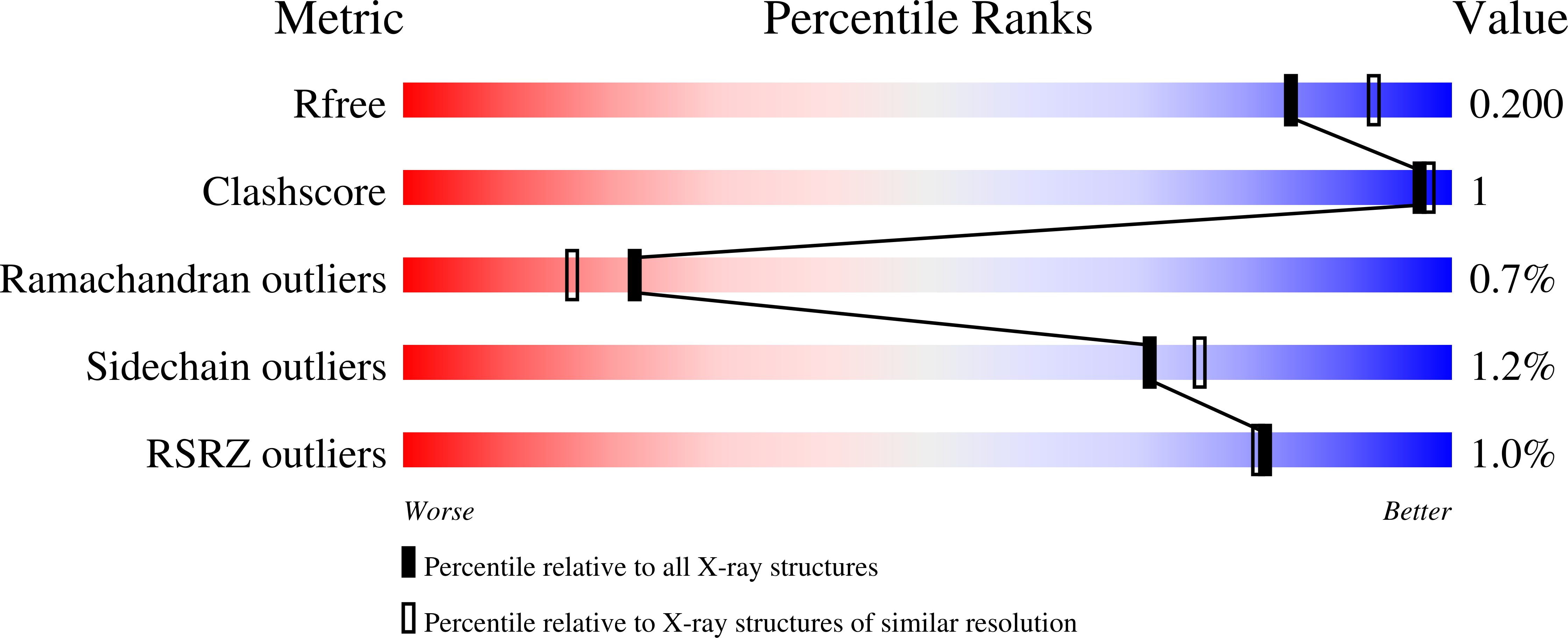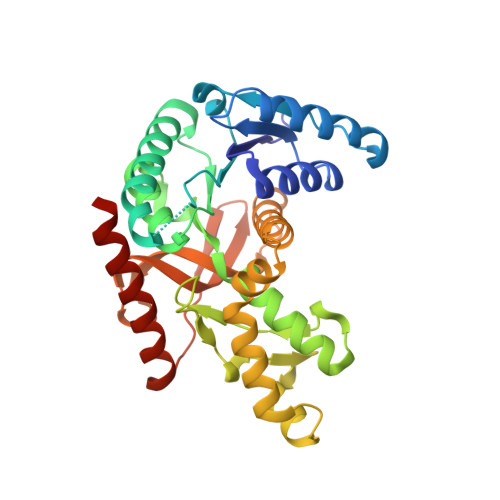Mapping the binding site for gossypol-like inhibitors of Plasmodium falciparum lactate dehydrogenase.
Conners, R., Schambach, F., Read, J., Cameron, A., Sessions, R.B., Vivas, L., Easton, A., Croft, S.L., Brady, R.L.(2005) Mol Biochem Parasitol 142: 137-148
- PubMed: 15978953
- DOI: https://doi.org/10.1016/j.molbiopara.2005.03.015
- Primary Citation of Related Structures:
1U4O, 1U4S, 1U5A, 1U5C, 1XIV - PubMed Abstract:
Gossypol is a di-sesquiterpene natural-product in the form of a functionalised binaphthyl and is isolated from cotton plants. The compound has long been known to exhibit anti-malarial and other biological activities. Previous studies have indicated that compounds of this type target Plasmodium falciparum lactate dehydrogenase (pfLDH), an essential enzyme for energy generation within the parasite. In this study, we report that simple naphthalene-based compounds, the core of the gossypol structure, exhibit weak inhibition of the parasite lactate dehydrogenase. Crystal structures of the complexes formed by binding of these naphthalene-based compounds to their target enzyme have been used to delineate the molecular features likely to form the gossypol binding site. Two modes of binding are observed: one overlapping the pyruvate but not the co-factor site, the other bridging the binding sites for the co-factor nicontinamide group and pyruvate substrate. This latter site encompasses molecular features unique to Plasmodium forms of LDH and is likely to represent the mode of binding for gossypol derivatives that show selectivity for the parasite enzymes. We also report a substrate analogue that unexpectedly binds within the adenine pocket of the co-factor groove. Although these core pharmacophore-like molecules only exhibit low levels of inhibitory activity, these molecular snapshots provide a rational basis for renewed structure-based development of naphthalene-based compounds as anti-malarial agents.
Organizational Affiliation:
Department of Biochemistry, University of Bristol, Bristol BS8 1TD, UK.















